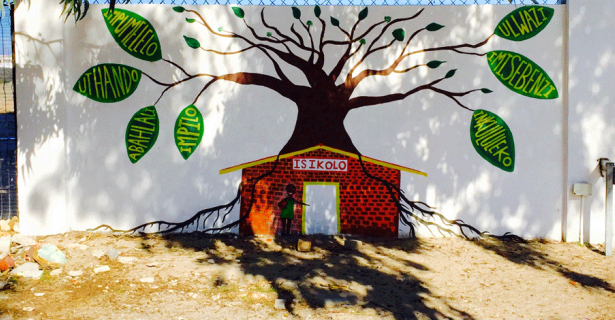Reflecting on my experience in South Africa this summer has been difficult to say the least. Given the past social and economic situations in the country, visiting South Africa was a unique experience. As a low-income Latina born in Mexico and raised in Milwaukee, Wisconsin—often referred to as the most segregated city in America—issues concerning race and socio-economic status have always directly affected me and influenced my perspectives. Learning about how racism continues to be institutionalized and engrained in our societies has made me aware of my own biases and privileges, like being able to visit South Africa in the first place. However, all of my personal experiences and knowledge on complex and multi-level issues like race did not prepare me for visiting South Africa.
I became frustrated because, with as much change that the country has endured since 1994 and with as many great scholars and intellectuals the country has, South Africa still faces the same challenges that the whole world faces. White supremacy and its effects can be seen on every corner and the tension between racial groups can often be felt. For instance, when we visited Saldanha Military Academy and spoke to a group of students, a comment was made that has remained in my thoughts since then. A black student felt that there will only ever be tolerance between blacks and whites, that there will never be true and genuine interactions or appreciation. This student felt that the “wounds of Apartheid are so deep” that only tolerance will ever exist between these groups. For me, this was something in a way I had felt, but never could put into words, and even so, it’s difficult for me to accept such a pessimistic thought. However, seeing clear examples of racial disparities that dominate the world, I have a hard time believing those wounds will ever be healed, when they are still being cut.
For example, we visited the Amy Biehl Foundation which works to provide afterschool resources and programs for kids in the townships of Cape Town. Amy Biehl was a white American woman who was killed in one of the townships during her service year as a Fulbright recipient in the years of the transition period. After her death, her parents created the foundation in her name, an act that to me emphasizes how subtle yet present white supremacy still is, and how deep the wounds of people of color truly are.
Although I think the work the foundation does is worthwhile, Amy Biehl was quoted to have said to her parents that if she were to die while doing her service in South Africa, she wanted to be a number like everyone else. In the past, when white people died in South Africa, their names were printed in the paper, but if black citizens died, they were written in merely as numbers. However, when she died, not only was she not a number but she had a whole foundation and a TV segment in her name. Her name is stamped everywhere in the buildings and the kids sing songs saying “we are the children of Amy Biehl.” Walking through, I felt immediately that we were parading in front of these black children and fulfilling the cliché of visiting poor kids in Africa. But as soon as we left, those kids would remain in the same situation they woke up in and the rest of us would return to our waterfront hotel. Yes, Amy Biehl’s death was unfair and unjust, but so was the death of millions of black and colored people before and during the years of Apartheid and not only do they not have foundations honoring them, but they continue to be murdered every day not only in South Africa, but in the United States and throughout the world.
Those experiences made the military student’s statement that much more powerful. As much as South African society has changed in the last decades, the wounds of Apartheid, of colonization, of white supremacy, of racism, and of segregation are all still fresh, deep, and present today. Racism continues to be institutionalized and people of color continue to be oppressed in communities throughout the world. Although Apartheid is no longer officially in place, its policies of injustice continue to govern our world, and white power continues to be seen as the saviors of society like in the case of Amy Biehl and “her children.”

